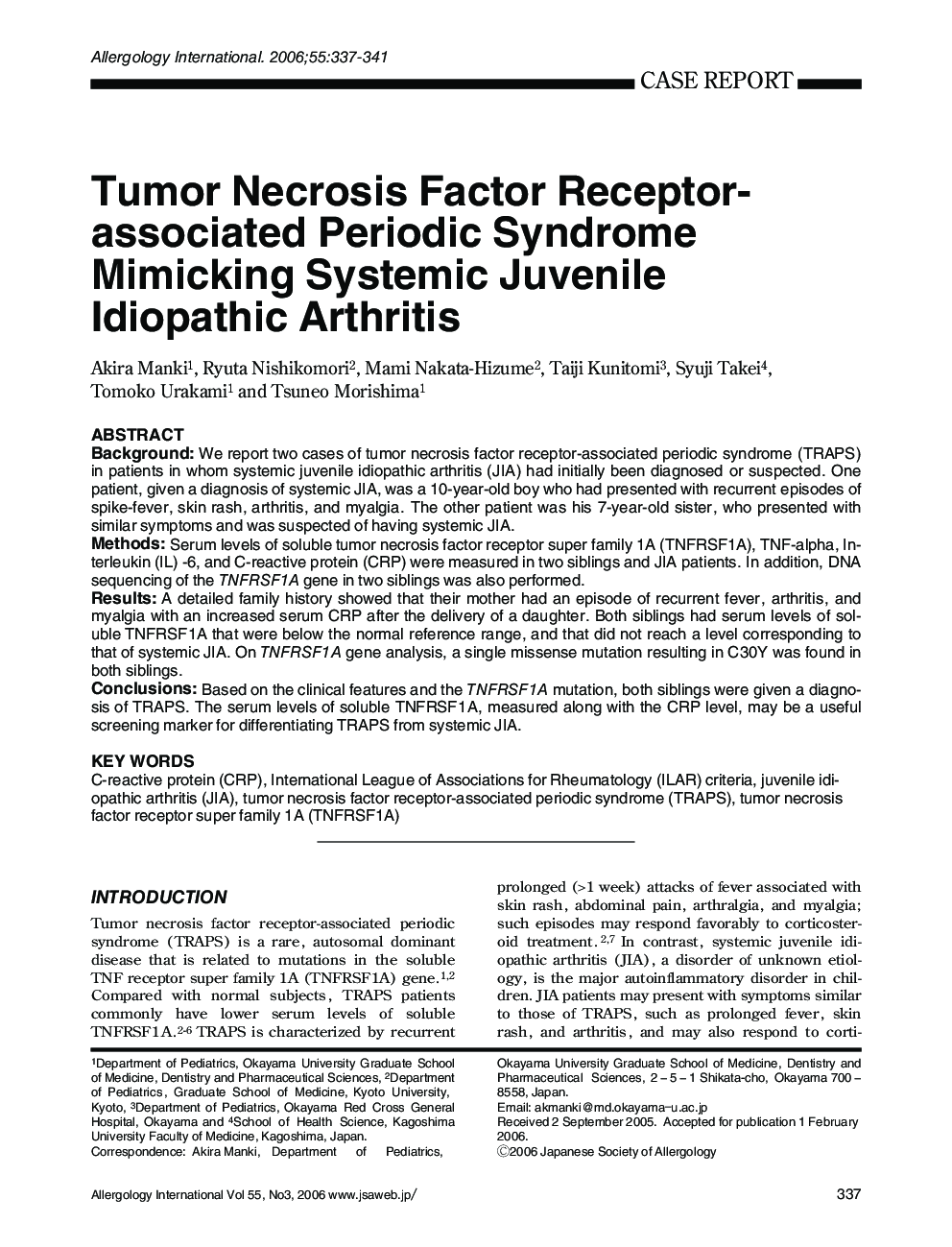| Article ID | Journal | Published Year | Pages | File Type |
|---|---|---|---|---|
| 3341168 | Allergology International | 2006 | 5 Pages |
ABSTRACTBackgroundWe report two cases of tumor necrosis factor receptor-associated periodic syndrome (TRAPS) in patients in whom systemic juvenile idiopathic arthritis (JIA) had initially been diagnosed or suspected. One patient, given a diagnosis of systemic JIA, was a 10-year-old boy who had presented with recurrent episodes of spike-fever, skin rash, arthritis, and myalgia. The other patient was his 7-year-old sister, who presented with similar symptoms and was suspected of having systemic JIA.MethodsSerum levels of soluble tumor necrosis factor receptor super family 1A (TNFRSF1A), TNF-alpha, In- terleukin (IL) -6, and C-reactive protein (CRP) were measured in two siblings and JIA patients. In addition, DNA sequencing of the TNFRSF1A gene in two siblings was also performed.ResultsA detailed family history showed that their mother had an episode of recurrent fever, arthritis, and myalgia with an increased serum CRP after the delivery of a daughter. Both siblings had serum levels of soluble TNFRSF1A that were below the normal reference range, and that did not reach a level corresponding to that of systemic JIA. On TNFRSF1A gene analysis, a single missense mutation resulting in C30Y was found in both siblings.ConclusionsBased on the clinical features and the TNFRSF1A mutation, both siblings were given a diagnosis of TRAPS. The serum levels of soluble TNFRSF1A, measured along with the CRP level, may be a useful screening marker for differentiating TRAPS from systemic JIA.
